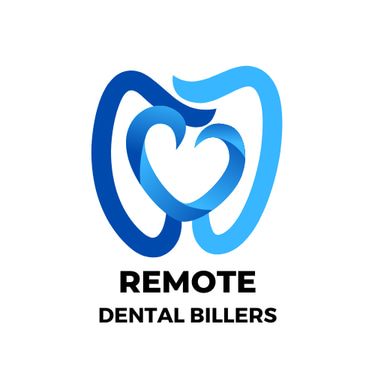5 Hidden Costs of In-House Dental Billing (And How Outsourcing Saves Money)
Running a dental practice requires balancing patient care with financial management. While many practices handle dental billing in-house to maintain control, few realize the hidden costs that eat into profits. From staffing expenses to claim denials, these overlooked expenses can significantly impact your bottom line.
3/7/20252 min read


In this blog, we’ll reveal the five hidden costs of in-house dental billing and show how outsourcing to Remote Dental Billers can save your practice thousands while improving efficiency.
1. Staffing & Training Expenses
Hiring and training an in-house dental billing specialist is costly. The average salary for a dental biller ranges from 40,000to40,000to60,000 per year, plus benefits, payroll taxes, and ongoing training.
Recruitment costs (job postings, interviews, onboarding)
Ongoing training (coding updates, software changes, compliance)
Employee turnover (replacing staff disrupts workflow)
How Outsourcing Helps:
Remote Dental Billers provides certified billing experts at a fraction of the cost—no hiring, training, or turnover worries.
2. Software & Technology Costs
Effective dental billing requires advanced software, which comes with:
Monthly subscription fees (200–200–500/month for practice management & billing tools)
IT support & updates (additional costs for troubleshooting)
Data security compliance (HIPAA-compliant systems aren’t cheap)
How Outsourcing Helps:
We use cutting-edge billing technology included in our service—no extra software expenses for you.
3. Claim Denials & Lost Revenue
Mistakes in coding, missing documentation, or late submissions lead to claim denials, costing practices 5–10% of their revenue.
Average dental claim denial rate: 15–25%
Time spent resubmitting claims: 2–3 hours per denial
Lost revenue from underbilling or unbilled services
How Outsourcing Helps:
Our specialists achieve <5% denial rates by ensuring accurate, timely claims submission and proactive follow-ups.
4. Administrative Burden & Lost Productivity
When your team handles billing, they spend less time on patient care and practice growth.
Staff spends 10–15 hours/week on billing tasks
Delayed patient scheduling & follow-ups due to billing workload
Missed opportunities (less time for marketing, case acceptance, and patient experience)
How Outsourcing Helps:
Free up your staff to focus on higher-value tasks like patient retention and practice expansion.
5. Compliance Risks & Penalties
Dental billing regulations (HIPAA, CDT coding, payer rules) change frequently. Mistakes can lead to:
Audits & fines (up to $50,000 per HIPAA violation)
Payer takebacks (forced refunds for incorrect billing)
Reputation damage (patient trust declines with billing errors)
How Outsourcing Helps:
Our team stays up-to-date on compliance, reducing audit risks and protecting your practice.
How Remote Dental Billers Saves You Money
By outsourcing dental billing, your practice can:
✅ Cut costs (no salaries, software, or training expenses)
✅ Increase revenue (fewer denials, faster payments)
✅ Reduce stress (experts handle the complex work)
✅ Stay compliant (avoid costly penalties)
Our services include:
✔ Insurance Verification – Prevent claim rejections upfront
✔ Claims Submission & Follow-Up – Get paid faster
✔ Payment Posting & Reconciliation – Accurate financial tracking
✔ Denial Management – Minimize revenue loss
✔ Credentialing Services – Expand insurance participation
Ready to Save Thousands?
Don’t let hidden billing costs drain your practice’s profits. Remote Dental Billers provides affordable, expert billing solutions tailored for dental practices.
📞 Call us today at (760) 284-5402
📧 Email: info@remotedentalbillers.com
🌐 Visit: www.remotedentalbillers.com
